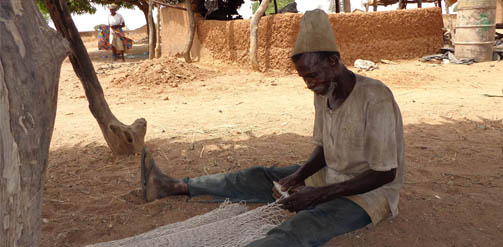An independent impact evaluation of a Millennium Villages Project (MVP) covering 35 villages in Northern Ghana finds that limited impacts relating to the Millennium Development Goals were achieved. The evaluation, led by Itad in partnership with the Institute of Development Studies (IDS) and Participatory Development Associates Ghana (PDA Ghana) also highlights how rigorous evidence must be programmed in at the earliest opportunity to inform significant investments in complex, poverty reduction projects, such as MVP, to ensure positive impact and cost-effectiveness.

Photo credit: Itad / MVEval / RCA Team The evaluation found that the project led to positive impacts in areas of education and health, including an increase of primary school attendance of 7.7% and an increase in the number of births attended by skilled professionals increased and contraception use. There was also a large impact on access to improved toilet facilities. However, the project did not achieve significant progress overall on reducing the level of poverty or hunger.
The Millennium Villages in Northern Ghana Impact Evaluation (MVEval) is a fully independent, robust evaluation of the Millennium Village Project (MVP) in Northern Ghana funded by the UK Department for International Development (DFID), which took place from 2012 to 2017.
The evaluation consisted of a statistically representative survey of over two thousand households from within 35 villages in the project site and 68 comparison villages. It also included three longitudinal qualitative studies that collected evidence on institutional change, a range of welfare measures and local perspectives.
The household data gathered as part of the MVEval is available for re-analysis and is intended for use by future projects and to aid researchers in Ghana with future studies.
Dr. Chris Barnett, Technical Director at Itad, said: “We believe this to be the first fully independent and robust evaluation of a Millennium Villages Project. Reducing poverty and inequality is a complex challenge that requires sustained long-term investment and this evaluation provides important insights and lessons on how this can be achieved cost effectively and sustainably.
“Continual experimentation and testing of interventions to improve health, education and other human development outcomes during the life of a project is essential to make sure they are working within specific local contexts, and generating critical learning for future efforts.”A full copy of the report and an online summary is available from mvevalonline.itad.com/

